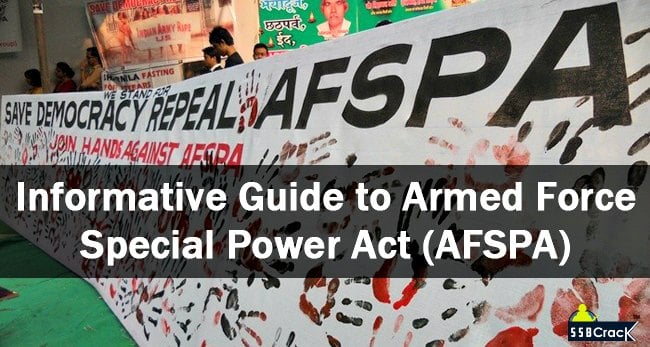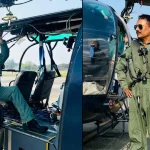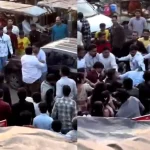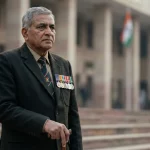AFSPA Armed Force Special Power Act, the name arising in the news headlines since last few days. AFSPA is enlarged as Armed Force Special Power Act, an act which was basically imposed by the British government so as to suppress Quit India Movement. Initially, the British government implemented this act to curb the revolution erupted due to the partition of Indian. For that, they formed four ordinances i.e. the Bengal Disturbed Areas Ordinance; the Assam Disturbed Areas Ordinance; the East Bengal Disturbed Areas Ordinance and the united provinces Disturbed Areas Ordinance which was implemented by the central government. Later, with the changing wave of freedom and emergence of rebellions within the country, the President of Independent India imposed the AFSPA onto some selective states. Let’s dig out more internal information about this Act., the name arising in the news headlines since last few days. AFSPA is enlarged as Armed Force Special Power Act, an act which was basically imposed by the British government so as to suppress Quit India Movement. Initially, the British government implemented this act to curb the revolution erupted due to the partition of Indian. For that, they formed four ordinances i.e. the Bengal Disturbed Areas Ordinance; the Assam Disturbed Areas Ordinance; the East Bengal Disturbed Areas Ordinance and the united provinces Disturbed Areas Ordinance which was implemented by the central government. Later, with the changing wave of freedom and emergence of rebellions within the country, the President of Independent India imposed the AFSPA onto some selective states. Let’s dig out more internal information about this Act.
Why AFSPA was Imposed:
It was in 1951 when the Naga’s rebellion stand out with a demand to make a free sovereign naga nation. The situation worsened when they start boycotting the general election of 1952, later the government schools and shops, etc. To overcome this situation, Assam riffles were given the charges. But as the time passed by, the Naga rebellion made their own government called as “The Federal Government of Nagaland” in 1956. At that time, by the then President of India, Dr. Rajendra Prasad permitted imposing of Armed Forces (Assam and Manipur) Special Powers Ordinance 1958 which was later renamed as Armed Force Special power Act. The same case was in the state of Jammu & Kashmir. The government enacted Armed Forces (Jammu and Kashmir) Special Powers Act, 1990 to curb the problem of increasing insurgency. According to AFSPA, the Governors of the States and the Administrators of the Union Territories are given the powers to declare the state as disturbed anyhow.
Why AFSPA is Opposed:
Well, the act was enacted by the government in order to overcome the situation of insecurity caused by the interior violating elements. But rather than encouraging the act of government, the local residents always oppose this act. In the state which are declared as “disturbed states” by the government, the armed force officer enjoys some powers. Under section 4 of AFSPA, an army officer can open fire on any person even it leads to his/her death. The action is taken for any violating group or any group hiding weapons with them. Another power allows them to arrest any person without permission and run a search operation to rescue the hostages or recover any illegal weapons storage. Because of these unlawful powers allotted to arm officer, this Act is highly opposed by the concerned localities.
Negative effects of AFSPA
Irom sharmila, a resident of Manipur, known as Iron Lady of Manipur, is still on hunger strike to protest against AFSPA in the state. AFSPA has faced criticisms from the common people of effected states. Several cases of harassment and its misuse has been recorded from the residents. In J&K, AFSPA is a kind of bay between military and civilians and that seems to be a sufficient cause of conflict between both of them. Army is still in favor of the continuation of this Act and gives rock strong reasons of proper implementation of law and order in the area. While civilians find it nothing more than a law to suppress their freedom. Shoot at the sight of Special Forces in north eastern states had made a fear among people and gained lots of criticism from residents. The incident of the year 2000 in which more than 12 people including children were shot in a bus top of Manipur by the military/paramilitary forces is one of many examples. Another incident includes killing of two school boys of class 10 and 7 by Army in a joint operation with paramilitary as they suspected them as terrorists”.
Current status of AFSPA:
Because of such unlikely statements in this act, many Human Rights organization have also criticized this. Recently, the state government of Tripura has declared to removal of AFSPA from Tripura after 18 years of its existence. But this is only a single state out of many affecting states in the list.
AFSPA will always be called as draconian law until and unless it is executed with right intentions and right utilization of given powers.













